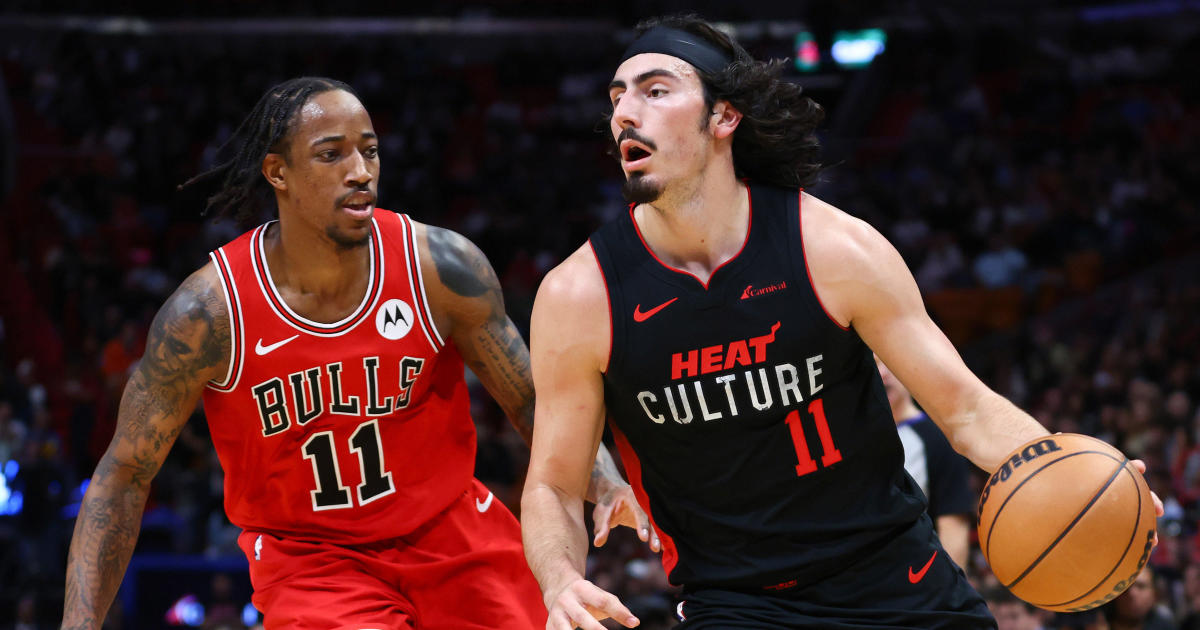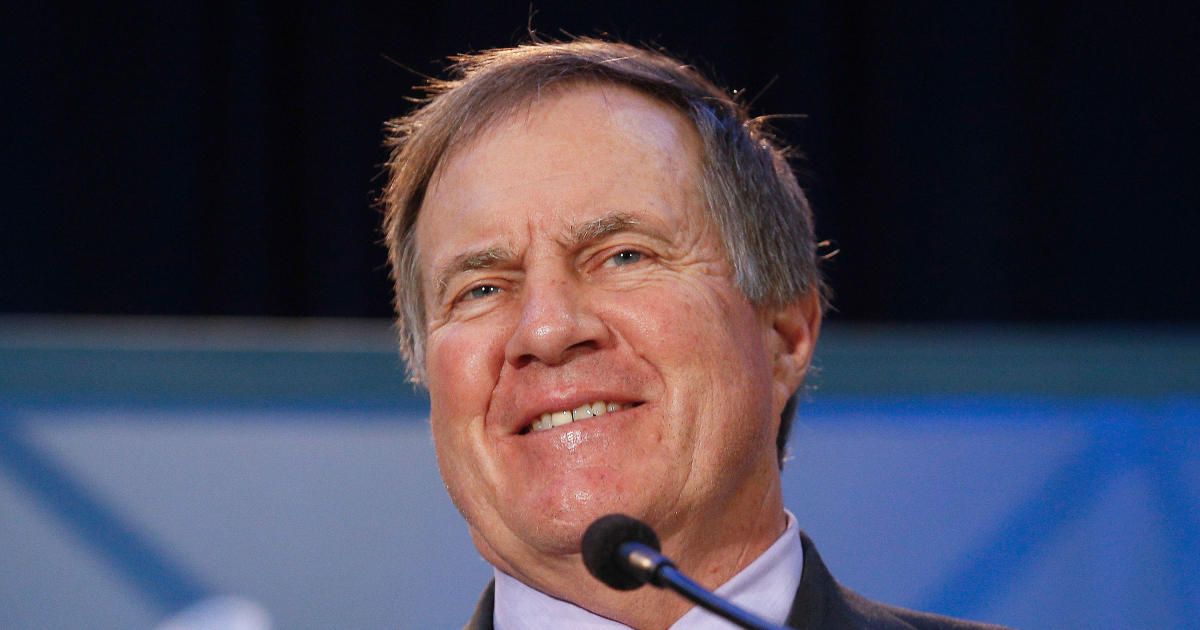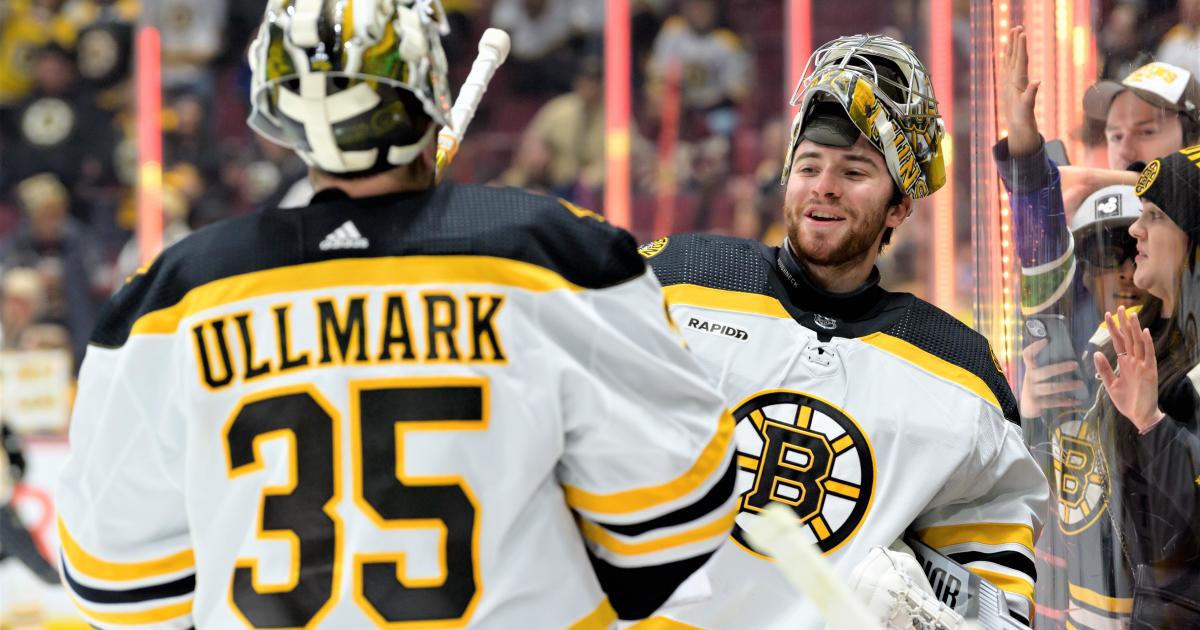NFL's "expedited replay" process failed spectacularly on DeVonta Smith's "catch" in NFC Championship Game
BOSTON -- We live in a bit of a reactive time, so let's start with two things.
One, there was no single call or moment that could have or would have changed the outcome of Sunday's NFC Championship Game in Philadelphia. The Eagles were a lot better than the 49ers, and nobody doubts that.
Second, with the moment we're about to question, it is indisputable that 49ers head coach Kyle Shanahan could have and should have thrown his challenge flag. His failure to do so has nothing to do with the NFL and its officiating headquarters in New York.
Now, with that being established, we can get to the point: The NFL and its replay assistance rule -- commonly referred to as expedited replay -- failed in a massive way on the first drive of the game on Sunday in Philadelphia.
By now, surely you know, but just to recap: The Eagles faced a fourth-and-3 at the Niners' 35-yard line and opted to go for it. Jalen Hurts rolled out to his left and chucked a pass downfield for DeVonta Smith, who made an incredible one-handed snag by the sideline and hauled the ball into his body for a 29-yard gain.
Smith, though, didn't secure the catch, and he knew it, so he rushed toward his teammates and urged them to snap the ball quickly, before the NFL could step in with expedited review and before Shanahan could figure out that throwing the red challenge flag was a good idea.
The Eagles did hurry to the line and snapped the ball with 24 seconds left on the play clock, thus killing any chance of any review or challenge. They scored a touchdown two plays later.
Only after that touchdown did FOX show a replay that clearly showed Smith losing control of the ball in the process of the "catch," thus making it an obvious incompletion.
But at that point, of course, it was too late.
Again, it was within Shanahan's power to throw the challenge flag, and based on Smith's own reaction after the "catch," he probably should have let it fly. No, Shanahan and his staff probably didn't see that angle, but the receiver's reaction was a good indication that a challenge to negate a huge fourth-down conversion was probably a good idea.
But the NFL has a whole system to prevent that from coming into play. The league -- which presumably has all replay angles available -- has until 20 seconds are on the clock to buzz to the referee to stop play to overturn a call on the field. In this case, the buzz never came, and the Eagles were allowed to snap the football with 24 seconds left on the play clock.
Last season, the NFL was so happy with this system that it created a couple of infographics in order to brag about how much time and how many challenges were saved by the new system:
In New England this year, we saw referee Ronald Torbert stand behind the center and prevent the Patriots from snapping the football after rushing to the line following a questionable call on a catch, which delayed their snap and allowed the Raiders to eventually challenge the play with success, resulting in an overturn.
Torbert had his own issues on Sunday, but those were in Kansas City. For the one in Philadelphia, referee John Hussey was nowhere in the picture. That would seem to be a failure, as the NFL's guidance for coaches is to wait until the 20 seconds pass on the play clock before throwing a challenge flag.
"If a coach is still not satisfied -- even after replay assist -- he can still challenge a reviewable ruling," the replay assistance rule page says on the NFL's operations website. "If he throws his challenge flag before the replay official or the team in New York make their decision, it becomes a coaches' challenge and his team risks losing that challenge. In these situations, coaches are often best served to throw a challenge flag only after the time for a replay assist has passed."
The suggestion from the NFL is for coaches to wait until that play clock gets to 20 before throwing the red flag, as the league has offered some assurance that replay officials in the stadium and at 345 Park Ave. are watching to ensure that obvious calls get fixed quickly.
In this case, the NFL failed miserably in that regard.
(There were other officiating questions in this game, with the 49ers getting penalized 11 times for 81 yards and the Eagles getting penalized four times for 34 yards. Some of those penalties were objective fouls, others -- like a pass interference, an illegal contact, and a roughing the kicker were much more subjective. The Eagles got seven first downs via penalty. Niners fans are no doubt upset about all of that, but that's a different issue altogether.)
Again, with the way the game played out, it's just about impossible to argue that this moment would have changed everything for the 49ers. That's the case after a 31-7 victory for the home team.
A novelist could create a fiction where the Niners get credited with that turnover on downs, Brock Purdy doesn't get hurt, and the game ends up being close. But that requires a long way into fantasy land.
The reality is that this was the NFC Championship Game. When the play in question took place, the score was 0-0. A possession -- and, ultimately, a touchdown -- was at stake. It's impossible to envision a scenario with more on the line. And after the on-field officials understandably missed a call on the field, the off-field officials didn't do their jobs in cleaning it up.
It's not quite the disaster that stemmed from the obvious missed pass interference penalty in the 2018 NFC Championship Game in New Orleans, as that blown call literally removed the Saints from the Super Bowl. But it's still quite bad.
And it contributes to the feeling that for as much as technology improves, the NFL still can't officiate games as well as it could or should.



